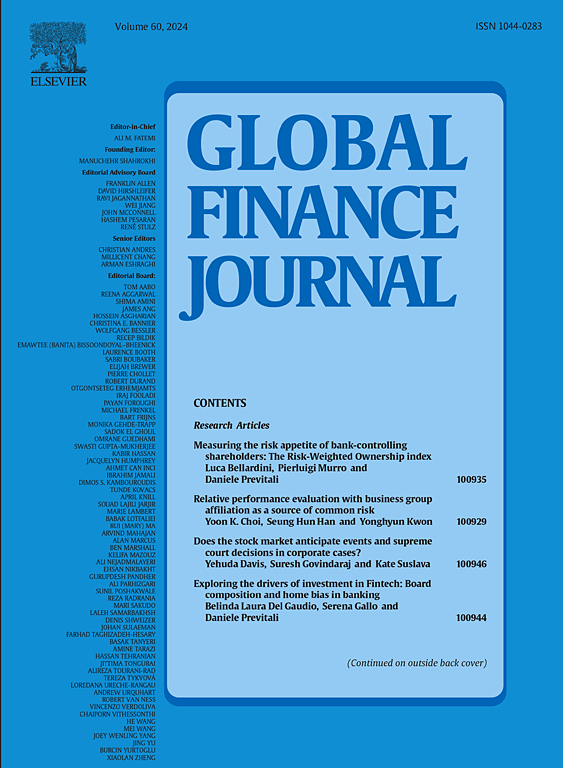Regulatory enforcement actions and bank liquidity creation: Evidence from China
IF 5.5
2区 经济学
Q1 BUSINESS, FINANCE
引用次数: 0
Abstract
We investigate how regulatory enforcement shapes bank liquidity creation, using a manually-collected dataset of administrative penalties combined with panel data for 368 Chinese commercial banks from 2010 to 2023. Employing a bank-level fixed-effects model, we find that enforcement causally enhances liquidity creation. This effect is not transitory, persisting for a 3-year period after sanctions. This positive effect operates through three channels: a strategic reallocation of bank portfolios, a strengthening of capital buffers, and an improvement in information disclosure. Furthermore, the effect is more pronounced for larger banks, for banks in regions with stronger supervisory capacity, and for sanctions targeting institutions rather than individual employees. Our study contributes to the literature by reframing the role of regulatory enforcement. We show that, rather than solely acting as a disciplinary constraint, well-designed sanctions can serve as a catalyst for beneficial adjustments in bank strategy and governance. This offers new insights into how supervisory design in emerging markets can bolster financial stability without compromising banks' financial intermediation capacity.
监管执法行动与银行流动性创造:来自中国的证据
我们使用人工收集的行政处罚数据集,结合2010年至2023年368家中国商业银行的面板数据,研究了监管执法如何影响银行流动性创造。采用银行层面的固定效应模型,我们发现强制执行会促进流动性创造。这种影响不是暂时的,在制裁后的3年时间内持续存在。这种积极效应通过三个渠道发挥作用:对银行投资组合进行战略性重新配置,加强资本缓冲,改善信息披露。此外,对于规模较大的银行、监管能力较强的地区的银行,以及针对机构而非个人员工的制裁,这种影响更为明显。我们的研究通过重构监管执法的角色对文献做出了贡献。我们的研究表明,精心设计的制裁措施不仅可以起到纪律约束的作用,还可以促进银行战略和治理方面的有益调整。这为新兴市场的监管设计如何在不损害银行金融中介能力的情况下促进金融稳定提供了新的见解。
本文章由计算机程序翻译,如有差异,请以英文原文为准。
求助全文
约1分钟内获得全文
求助全文
来源期刊

Global Finance Journal
BUSINESS, FINANCE-
CiteScore
7.30
自引率
13.50%
发文量
106
审稿时长
53 days
期刊介绍:
Global Finance Journal provides a forum for the exchange of ideas and techniques among academicians and practitioners and, thereby, advances applied research in global financial management. Global Finance Journal publishes original, creative, scholarly research that integrates theory and practice and addresses a readership in both business and academia. Articles reflecting pragmatic research are sought in areas such as financial management, investment, banking and financial services, accounting, and taxation. Global Finance Journal welcomes contributions from scholars in both the business and academic community and encourages collaborative research from this broad base worldwide.
 求助内容:
求助内容: 应助结果提醒方式:
应助结果提醒方式:


